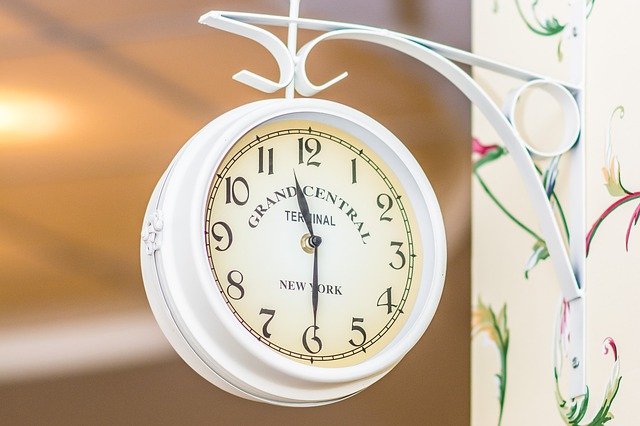
Most of us changed our clocks over the weekend, putting them an hour ahead, and now it’s Monday. How are you feeling?
If you’re like most of us, you’re dragging because you had to get up an hour earlier than usual. The change has a way of throwing us off, and usually for longer than just a day.
There’s no doubt that switching to Daylight Savings time has some benefits. Getting out of work and finding that the sun is still up is a welcome change, and allows us not only to drive home in the daylight, but to enjoy more outdoor activities, which is good for our health. The time change also saves energy and reduces car accidents.
On the other hand, going through the transition can be difficult, and even harmful in some cases. Studies have found it increases risk of heart attack and stroke for two days after the change, robs us of sleep for several days, and can set off an increased incidence of headaches and other aches and pains.
If you’re one of the many who “springs forward” this time of year, we’ve got five tips to help you recover faster, get the sleep you need, and manage the change more easily.
1. Help Yourself to Fall Asleep on Time
The hardest thing about the time change is adjusting your sleep patterns and your circadian rhythms. Your body and mind are naturally programmed to wake and sleep at certain times, and you’ll now have to adjust that.
You can reset your internal clock by taking a few key steps. Light is the principal cue, so for a few days, make sure you’re getting as much exposure to light as possible, especially first thing in the morning. Then make your room pitch black at night. Use earplugs and an eye mask if you need to. Shut down most of your lights (and all technological gadgets) at least one hour before bedtime, preferably two. Use only dim lighting for the last couple hours of the night.
Resist taking a nap during the day, and help yourself to fall asleep at the new time by making sure you’re exercising during the day-exercise wears your body out. Perform some sort of relaxing activity before bed, like reading or taking a warm bath. If you get to bed and you’re not tired, don’t lie awake-do something quiet like reading until you feel sleepy. Avoid using your cell phone or tablet. Exposure to blue light from these gadgets signals your brain to stay awake.
2. Use Caffeine Wisely
Unless you’re very sensitive to caffeine, now is the time to use it, but only first thing in the morning. Enjoy your morning cup of jo or other caffeinated drink, but then make sure you avoid it from about 3:00 in the afternoon on, so it won’t mess up your nighttime sleep.
If you’re not a coffee drinker, some other healthy options include a couple cups of black tea, a cup of yerba mate or matcha tea, or a smoothie with some guarana berry extract.
3. Eat Lightly at Night
Eating too late at night sets you up for a disruptive sleep. Your goal is to get to sleep a little earlier in the evening, so eat light, simple foods in the hours before bedtime. Avoid heavy, high-fat foods and choose lean proteins and high-fiber foods instead. Some good examples include fish, vegetarian meals, vegetables, soups, salads, and brown rice.
It’s best to avoid spicy foods too, as these can aggravate your digestive system and keep you up.
4. Exfoliate Your Skin
Daylight savings time is the perfect time to review your exfoliation schedule. When you’re tired, your skin is likely to look dull and lackluster, too. To help yourself feel and look more awake, try a gentle exfoliation treatment in the morning instead of in the evening.
Exfoliation is usually best at night, as you can then apply a nice night cream and let your skin regenerate while you sleep. During this first week of adjustment, though, you can turn the routine upside down to give yourself that fresh flush first thing in the morning.
Avoid scratchy, irritating scrubs and use a gentle product that will help slough off that dead layer of skin and will leave you looking more awake and radiant. Then apply a good moisturizer (our Calming Moisture is perfect for this) so your skin stays hydrated throughout the day. Even if you don’t feel particularly awake, you’ll look it!
5. Drink More Water.
We talked about the importance of drinking water in last week’s post, but it bears repeating here. Even if you’re slightly dehydrated you are likely to feel fatigued, and you want to do everything you can to feel more awake, so be sure you’re drinking plenty of water throughout the day.
How do you adjust to daylight savings time?
SourcesAshley Strickland, “Why daylight saving time can be bad for your health,” CNN, March 11, 2016, http://www.cnn.com/2016/03/11/health/daylight-saving-time-health-effects/.

